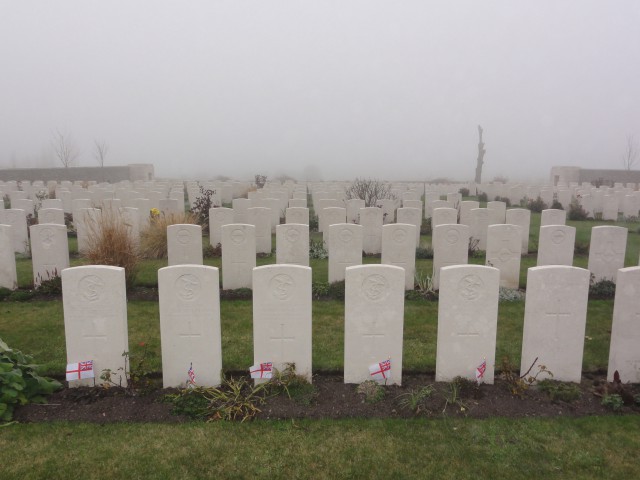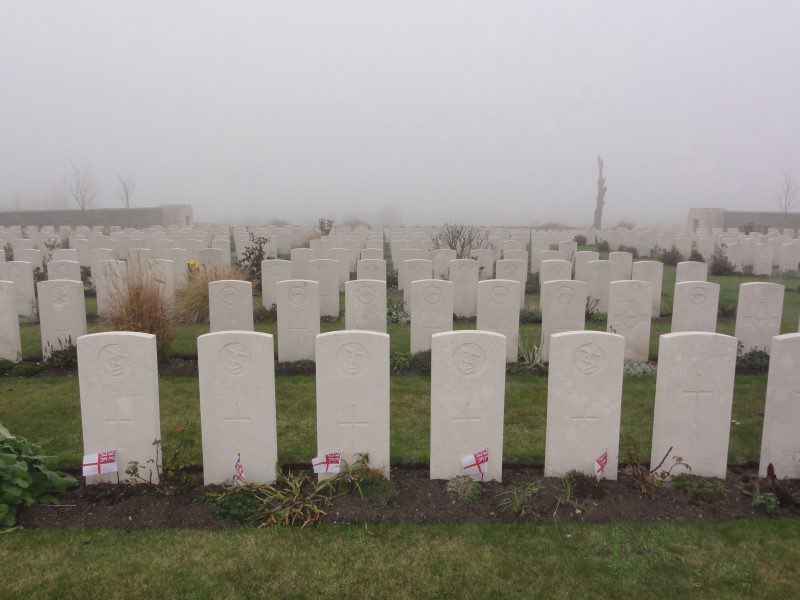
Six British soldiers have been buried in Flanders Fields with full military honors, almost a century after they died in the early days of long and bloody First World War. These soldiers were identified to have served in Lancashire Fusiliers, and King’s own Royal Lancaster Regiment. Bodies of these soldiers were discovered almost half a century ago in the area surrounding the Ypres, where some of the fiercest battles of the First World War took place.
The town of Ypres became synonmous to war and destruction during the First World War. Famous for its textile production, Ypres is a medieval town with rich history. Surviving three assaults by Germany, Ypres showed great resilience but paid a heavy price in terms of destruction and Mayhem. German swiftly swept through Belgium on their way to Paris, without facing any significant resistance. However, German troops were unable to gain full control over Ypres.
The town underwent strong fortification by Vauban during the 17th century. However, by the time the First World War reached Ypres there were only one out of seven fortifications still standing in town’s defense.
On October 13, 1914, German soldiers from the 3rd Reiter Division marched into the town and quickly took town’s Burgomaster as hostage and took 75,000 Belgium Francs in exchange. British forces arrived in the town the very next day, forcing the small German Army to leave the town. Ypres stayed under Allied control for the rest of the war. However, it would not stay safe from the destruction and chaos of the war.
Though German troops kept taking the regions surrounding the Ypres Salient, heavy presence of Allied troops in Ypres was threatening and intimidating to Germans. German commanders made a number of plans to defeat the Allied troops in Ypres and take full control of the region.
First major German assault took place on 22nd November 1914, when Germans pounded the town with heavy artillery. A large number of civilians were killed and a Cloth Hall dating back to 1260 was set to fire. A large part of the historic town was razed to ground by the bombing. Despite all the destruction some of the civilians decided to stay in the town, The Independent reports.
After a few months of quiet and peace, Germans launched another offensive in April 1915. German troop were adamant to seize the control of town, and continued the shelling till May 1915. The Cloth Hall, along with a historic church was completely destroyed. Allies decided to evacuate all the civilians in the wake of more German attacks, and the whole town became an Allied Garrison.
In a final desperate attempt, German troops launched a strong spring offensive in 1918 to claim the town and successfully made to the outskirts of the town. But brave British soldiers stood their ground and held on to the town, and eventually forced German to retreat.
